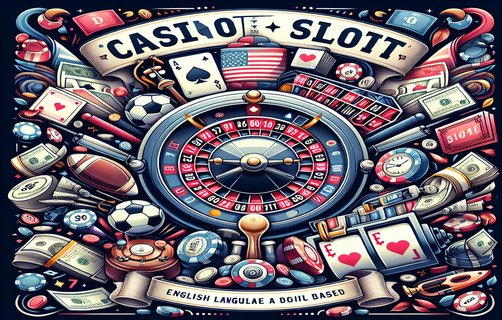Mastering the Art of Poker: A Deep Dive into Strategic Betting and Player Psychology
पोकर की कला में महारत: रणनीतिक दांव और खिलाड़ी मनोविज्ञान की गहरी जांच
In the world of poker, where fortunes are won and lost in the blink of an eye, the blend of skill, strategy, and psychological prowess defines the trajectory of a player’s journey. This article aims to dissect the intricate layers of decision-making processes that elevate a player from a casual enthusiast to a formidable opponent at the table.

Decision Composure forms the backbone of strategic poker play. The ability to maintain a calm demeanor in high-pressure situations can often be the difference between a seasoned player and a novice. Successful players cultivate a mindset that allows them to analyze their options methodically rather than succumbing to impulse. Staying composed not only aids in making informed decisions but also affects how opponents perceive and react to the player’s betting patterns.
Goal Setting Execution is another critical element. Seasoned players understand that each session at the table should have specific, measurable goals—be it a targeted win percentage, the number of successful bluffs, or gaining insights into opponents’ playing styles. This clarity of purpose guides a player’s actions and enhances focus, turning each game into a step towards achieving longer-term objectives.

When discussing Bet Optimization Planning, it’s vital to delve into the mechanics of how bets are structured. Effective bankroll management ensures that players can weather the swings of luck—a poorly timed all-in can wipe out a session worth of gains. Players skilled in bet optimization thoughtfully vary their stakes, balancing potential reward with the inherent risks of the game to maximize their profits while minimizing losses.
Long-term Profits Optimization requires a rigorous analysis of play over time. It’s not just about winning one hand but creating a consistent profit strategy suitable for varied game styles. Players who harness statistical tools and data analysis can identify trends in their gameplay as well as that of their opponents, allowing for tailored strategies that adapt to evolving environments.
Strategic Placements at the poker table can influence not only the outcome of individual hands but the overall flow of a game. Knowing when to position oneself as an aggressor or a passive player can draw out more chips from opponents. The dynamics of position are constantly shifting, and recognizing these fluctuations allows astute players to capitalize on opportunities that arise during gameplay.
Finally, understanding Player Psychology ties together all the preceding strategies. Recognizing the types of players at the table—be they risk-averse, overly aggressive, or passive—enables a strategic player to exploit weaknesses. Utilizing psychological tactics, such as changing one’s own pacing and behavior, can unsettle opponents and lead to mistakes that pave the way for victory.
In conclusion, poker is more than just a game of chance; it is a complex interplay of strategic decision-making and psychological insights. By honing skills in decision composure, goal-setting, and strategic play, a player can maximize their potential for success at the tables, transforming the game into a thrilling, yet calculated pursuit of profit.
पोकर की दुनिया में, जहाँ चंद पलों में किस्मत बदल जाती है, कौशल, रणनीति और मनोवैज्ञानिक प्रवीणता का मेल एक खिलाड़ी की यात्रा को परिभाषित करता है। यह लेख निर्णय लेने की प्रक्रियाओं की जटिल परतों को खोलने का प्रयास करता है, जो एक खिलाड़ी को एक आकस्मिक शौकिया से एक ठोस प्रतिकूलता में उठाता है।
निर्णय संयम रणनीतिक पोकर खेलने की रीढ़ है। उच्च दबाव की स्थितियों में शांतिपूर्ण व्यवहार बनाए रखने की क्षमता अक्सर अनुभवी खिलाड़ियों और नौसिखिए के बीच का अंतर होता है। सफल खिलाड़ी एक मनोवृत्ति पर विचार करते हैं जो उन्हें विधिपूर्वक विकल्पों का विश्लेषण करने की अनुमति देती है बजाय इसके कि वे आवेग में succumb करें। संयम बनाए रखने से न केवल सूचित निर्णय लेने में मदद मिलती है बल्कि यह भी प्रभावित करता है कि प्रतिकारी खिलाड़ी की शर्तों का मूल्यांकन करते हैं।
लक्ष्य निर्धारण कार्यान्वयन एक और महत्वपूर्ण तत्व है। अनुभवी खिलाड़ी समझते हैं कि तालिका पर प्रत्येक सत्र के लिए विशिष्ट, मापनीय लक्ष्य होने चाहिए - चाहे वह लक्ष्य प्रतिशत हो, सफल ब्लफ की संख्या, या प्रतिकारी खिलाड़ियों की खेलने की शैलियों के प्रति अंतर्दृष्टि प्राप्त करना हो। इस उद्देश्य की स्पष्टता खिलाड़ी के कार्यों का मार्गदर्शक बनती है और ध्यान केंद्रित करने में मदद करती है, हर खेल को दीर्घकालिक उद्देश्यों में एक कदम में बदल देती है।
जब दांव अनुकूलन योजना की बात आती है, तो यह महत्वपूर्ण है कि दांव को कैसे संरचित किया जाए, इस पर चर्चा की जाए। प्रभावी बैंक रोल प्रबंधन यह सुनिश्चित करता है कि खिलाड़ी किस्मत के झूलों का सामना कर सकें - एक खराब समय पर सभी में डालने से सत्र के मूल्य को मिटा सकता है। दांव अनुकूलन में कुशल खिलाड़ी सोच-समझकर अपने दांवों का भिन्नता करते हैं, संभावित पुरस्कार को खेल में निहित जोखिमों के साथ संतुलित करते हैं ताकि वे अपने लाभ को अधिकतम कर सकें जबकि हानि को न्यूनतम कर सकें।
दीर्घकालिक लाभ अनुकूलन समय के साथ खेल का एक कठोर विश्लेषण की आवश्यकता है। यह केवल एक हाथ जीतने के बारे में नहीं है बल्कि एक निरंतर लाभ रणनीति बनाना है जो विभिन्न खेल शैलियों के लिए उपयुक्त है। खिलाड़ी जो सांख्यिकीय उपकरणों और डेटा विश्लेषण का उपयोग करते हैं, अपने खेल के रुझानों की पहचान कर सकते हैं साथ ही अपने प्रतिकारी खिलाड़ियों के खेल का नज़रिया भी।
पोकर की मेज पर रणनीतिक स्थान का चुनाव न केवल व्यक्तिगत हाथों के परिणाम पर प्रभाव डाल सकता है बल्कि खेल के समग्र प्रवाह पर भी। यह जानना कब आक्रामकता के रूप में सामने आना है या पैसिव खिलाड़ी के रूप में तालिका पर जगह बनाना, प्रतिकारी खिलाड़ियों से अधिक चिप्स निकाल सकता है। स्थान की गतिशीलता लगातार बदल रही है, और इन परिवर्तनों को पहचानना सचींच खिलाड़ियों को गेमप्ले के दौरान उत्पन्न होने वाले अवसरों का लाभ उठाने की अनुमति देता है।
अंत में, खिलाड़ी मनोविज्ञान की समझ सभी पूर्ववर्ती रणनीतियों को जोड़ती है। तालिका पर खिलाड़ियों के प्रकारों को पहचानना - चाहे वे जोखिम से बचने वाले, अत्यधिक आक्रामक, या निष्क्रिय हों - एक रणनीतिक खिलाड़ी को कमजोरियों का लाभ उठाने में सक्षम बनाता है। मनोवैज्ञानिक रणनीतियों का उपयोग करते हुए, जैसे कि अपने अपने गति और व्यवहार को बदलना, प्रतिकारी खिलाड़ियों को अस्थिर बना सकता है और गलतियों का कारण बन सकता है जो विजय की राह खोलता है।
निष्कर्ष में, पोकर सिर्फ एक मौका का खेल नहीं है; यह रणनीतिक निर्णय लेने और मनोवैज्ञानिक अंतर्दृष्टियों का जटिल अंतर्संबंध है। निर्णय संयम, लक्ष्यों की स्थापना, और रणनीतिक खेल में कौशल को बढ़ाकर, एक खिलाड़ी तालिकाओं पर सफलता की क्षमता को अधिकतम कर सकता है, इस खेल को रोमांचक, फिर भी गणना किए गए लाभ के रूप में बदल सके।

comments
AceTracker
This analysis brilliantly captures the essence of poker strategy.
WildBluffer21
I love the focus on psychological tactics; it's a game of the mind.
ChipMaster
Great insights on bet optimization! I'll be using this in my next game.
StrategicGambler
The section on goal setting is particularly helpful for long-term success.
PokerNinja
Amazing how much psychology plays a role; I need to pay attention to this.
StackWinner
This article provides an excellent roadmap for aspiring poker pros!